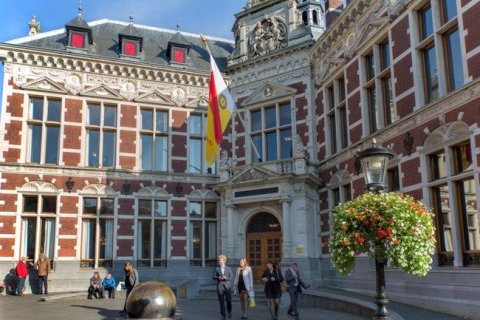PhD Defense: Change in the Law of the Sea: Context, Mechanisms and Practice

Rozemarijn Roland Holst will defend her thesis at Utrecht University on October 5, 2020. It is entitled: Change in the Law of the Sea: Context, Mechanisms and Practice.
The adoption of the UN Convention on the Law of the Sea (UNCLOS) in 1982 was a milestone in the development of the law of the sea, and in international law-making in general. As the ‘constitution for the oceans’, the Convention has been praised as a monumental achievement, as much as it continues to be the subject of contemporary debates. Many present-day exigencies are dramatically different in nature and scope than those on the table of the drafters back in the seventies.
Oceans under stress
The oceans are under stress from cumulative pressures of an unprecedented nature and scale: ranging from the impacts of climate change and ocean acidification, to the widespread loss of biodiversity, pollution and ecosystem degradation. These changing circumstances and interests pose challenges for the law of the sea and ocean governance to respond, adapt, and mediate demand for normative change.
This thesis builds on the premise that the conclusion of a treaty is only the beginning of an ongoing ‘law-building process’, and that the formal shape of an instrument does not guarantee either its continued ‘stability’ or its susceptibility to change. It centres around the research question how - that is, through which mechanisms already present in international law - UNCLOS can respond to demand for change arising from its contemporary context. The approach adopted in this study to analyse ‘change’ in the law of the sea builds on three inseparable pillars: the context from which demand for change emerges, the mechanisms for change available within the international legal system, and how these mediate change in practice.
Evolving and adapting in an ever-changing context
The research sheds new light on the process of normative development through which an ‘old’ treaty like UNCLOS can evolve and adapt to its ever-changing context. By analysing the diverse and interacting forces that contribute to this process, it illustrates why formalistic approaches to law-making and normative development fall short to adequately account for the range of dynamics in international law that make a treaty-shaped collection of rules and principles a ‘living instrument’. The study gauges the potential of the mechanisms that provide the Convention with its unique flexibility, but also reveals their inherent limitations. Change in the law of the sea thus emerges as a gradual process of transformation that unfolds in different ways, at different speeds, and with varying degrees of ease for different parts of the regime.
Sustainable Ocean
The PhD research is part of the ERC Sustainable Ocean Project, at the Netherlands Institute for the Law of the Sea (NILOS) and the Utrecht Centre for Water Oceans and Sustainability Law (UCWOSL)
- Start date and time
- End date and time
- Location
- Academiegebouw, Domplein 29 in Utrecht & online (link)
- PhD candidate
- Rozemarijn Roland Holst
- Dissertation
- Change in the Law of the Sea: Context, Mechanisms and Practice
- PhD supervisor(s)
- Prof. Seline Trevisanut
- Prof. Alex Oude Elferink

